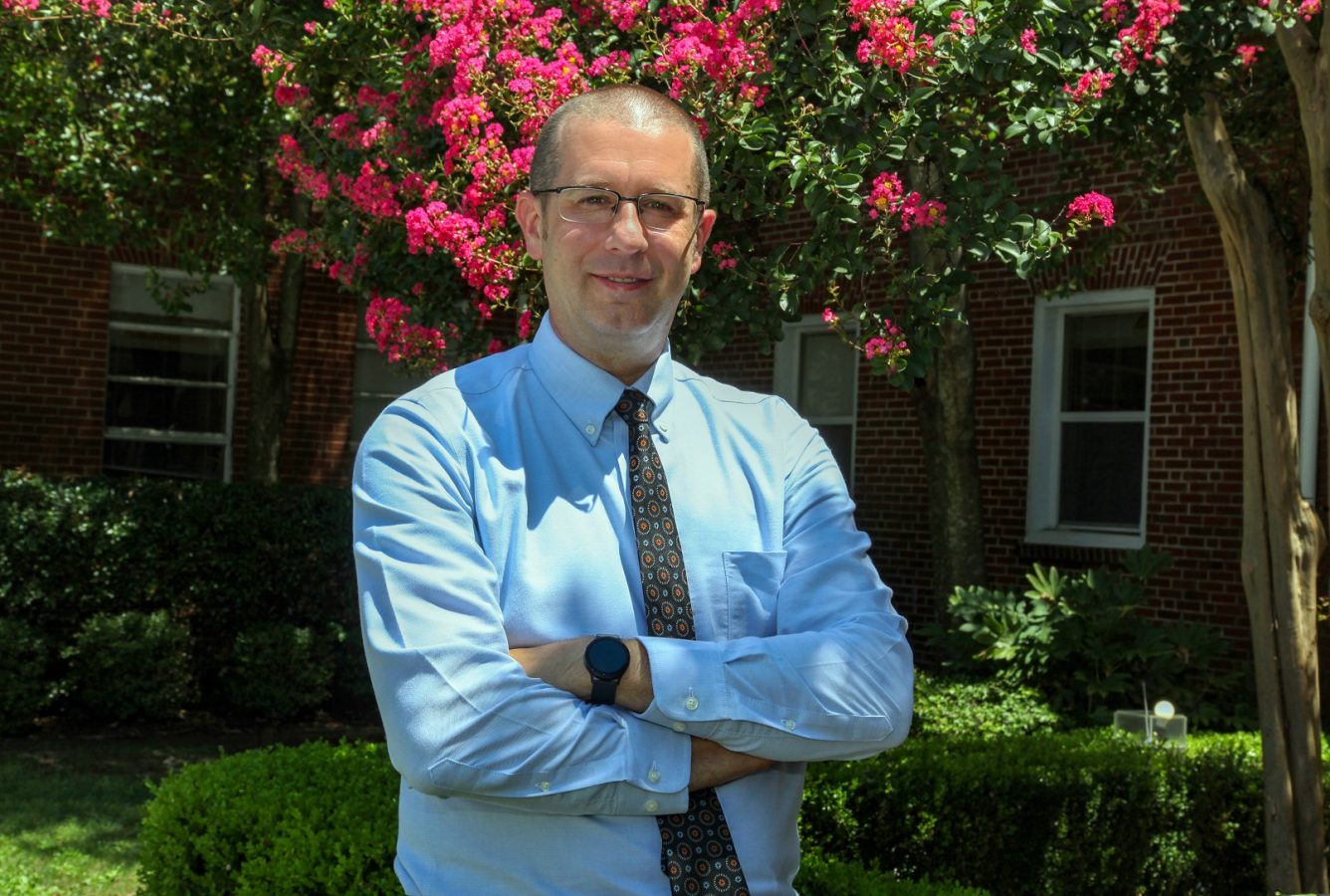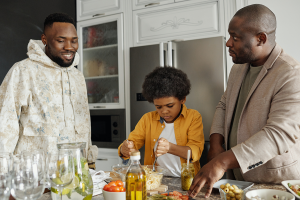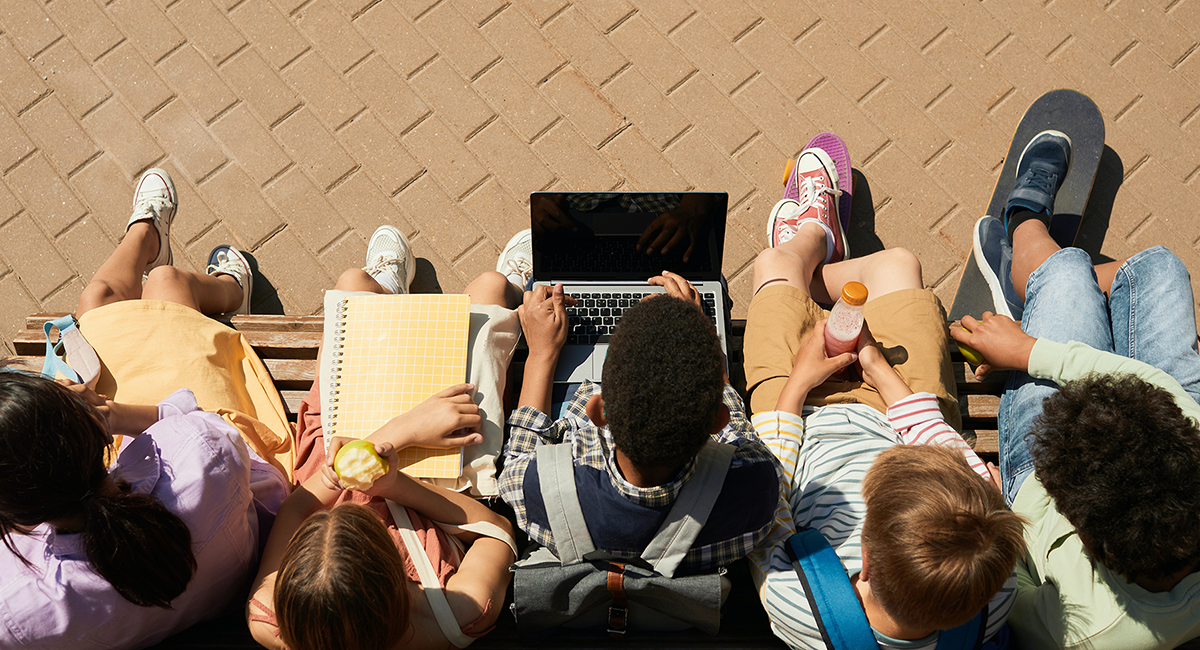Children across the CSRA and country are heading back to school in the coming weeks, and that brings uncertainty and stress for students of all ages, as well as their parents.
Children usually already have a slew of things on their minds this time of year, including being accepted by peers, getting homework done, being involved in extracurricular activities and making sure they get enough sleep.
However, in recent years, stress and anxiety have taken on new forms, and seemingly increased, in part due to the COVID-19 pandemic and mass shootings at locations like schools.
But if there is one thing Dr. Dale Peeples can say about children, even before the pandemic, it’s that they are resilient and can bounce back from just about anything.

“Kids are resilient, and that’s part of the reason I went into child psychiatry. They do a lot of the work for me because they get better on their own, and I’m just here to support them on the way,” Peeples said.
“I share that optimistic attitude that if you give a kid time, they’re going to get better. Sometimes it’s just putting out the safety guards to support them and make sure that they keep on that right track, and try to notice and acknowledge those little successes.”
Peeples, an associate professor in the Department of Psychiatry and Health Behavior at the Medical College of Georgia at Augusta University, is a licensed child and adolescent psychiatrist, and he believes parents or legal guardians are the biggest advocates children have in battling stress, anxiety and depression.
“Adults looking after children really need to pay attention to their child, seeing where they’ve got strengths and trying to channel their activities and interest into those places where a child sees themselves as successful. This can build that self-esteem and help them on their road to recovery, too,” Peeples said.
There’s one thing in particular Peeples believes may ward off psychological issues in many children — and prior to the pandemic, it might have felt like a distant memory. Peeples thinks sharing at least one meal as a family each day helps keep lines of communication open.
“Communication is obviously ideal. Families want to make sure that they’re still getting together, having dinner as a family, discussing how the children’s day went so parents and guardians are in the loop about what kids are dealing with,” Peeples said. “Trying to maintain that open line of communication, so when kids are having concerns, they can bring it up and the parents can try to address it sooner really helps.”
Peeples believes this open communication between caregivers and their children can help with detecting warning signs of depression.
“Parents need to be on the lookout for symptoms of depression: that’s changes in mood, feeling sad or down, but also when kids withdraw socially by locking themselves in their rooms because they don’t want to go out, be around other people, do things they enjoy,” Peeples said.
“I also try to encourage families to keep an eye on social media because sometimes kids are expressing things there that they’re not saying face to face to parents,” Peeples continued. “You don’t want to be spying on them behind their backs, but I think it’s a good idea when social media accounts get set up, that kids agree to add their parents as a friend so at least they know what the kids are sharing with the general public and that sort of thing. Obviously, having a good relationship with your kid’s friends is important, too, because they’re going to be a huge influence on your child’s behavior.”

Peeples notes this open line of communication has to be a two-way street, and he makes sure to mention to his patients that they have to be willing to communicate with their parents.
They also need to get plenty of rest. A simple solution? Turn off the cell phone, or at least put it in another room while sleeping.
“The biggest thing I see kids struggle with, honestly, is sleep. Sleep has a huge impact on mood and anxiety, and getting proper sleep is really tough in this day and age when you’ve got cell phone notifications going off around the clock,” Peeples said.
“Talking to kids about trying to get minimum eight, maybe even better, 10 hours of rest, keeping the electronics out of the bedroom — that can go a long way. Exercise also will help with emotional state, reducing anxiety and help with sleep. Making sure that you’re socially connected, that you feel like you’ve got a couple of good friends you can turn to and that you’re talking to your family. Those are big things that I encourage to everyone I see, and I think are generally good advice for the community as well.”
While increased stress from the COVID-19 pandemic has affected many age groups, Peeples has noticed older kids — those in middle school and into the early years of high school — appear to have been struggling more. Students in this age group face more hurdles than those younger or older, including trying to form peer relationships. That age is also when schoolwork begins to ramp up.
“Peer relationships become a lot more important as you become a teenager as compared to when you are little bit younger. So being removed from your friends is tougher to deal with for those older kids. Also, school becomes more demanding and sometimes that catchup on work that was missed is going to be a little more challenging than younger grades.”
On top of the social anxiety of going back to school after the huge disruption of the last two years, in recent years there has been more media coverage of mass shootings, particularly at schools, and that obviously has parents especially worried.
“It is a conversation topic that does come up in the office. Both parents and children do at times bring it up as concerns,” Peeples said. “For little kids in particular, it can be tough to understand that what’s on the news, it may be the same story repeated five times. For younger grade-school kids, things can seem a little bit concrete with how they think about things, so each time they hear it on the news, they feel like it is happening again and again. It might just be the same story.
“So, part of it is parents controlling media consumption for younger kids,” Peeples continued. “Teenagers, obviously, they understand what’s going on, and it’s going to be a little bit harder for parents to monitor the media, but having those open dinner table discussions can let parents know when their kids are having worries.
“Making sure that people who are experiencing a mental health crisis know how to reach out is paramount. We have the Georgia Crisis Access Line. When you’re worried about someone, or love someone, reaching out, making sure that they get the help and support they need to prevent these tragedies is crucial.”
Each month, as part of our new research series, Jagwire will feature a different researcher discussing their area of expertise.
 Augusta University
Augusta University




